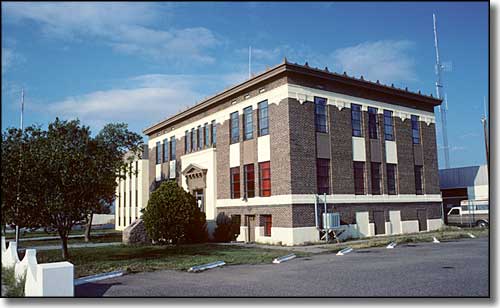
Lordsburg is another one of those towns that started as a whistle stop on a railroad line, in this case the Southern Pacific Railroad. The route of the Southern Pacific was made possible by the Gadsden Purchase of 1853. Prior to the railroad, the Butterfield Overland Stagecoach mail route ran nearby through the present-day ghost town of Shakespeare. Shakespeare was originally known as Mexican Springs, a year-round source of plentiful water. The National Mail and Transportation Company established a mail stop there and renamed the place Grant. Then William Ralston, founder of the Bank of California, bought the property and renamed it Ralston. He formed the New Mexico Mining Company and began mining silver ore close by, however, the claims he was working were poorly staked and improperly recorded. In the late 1870's, the Shakespeare Mining Company came in, bought the property, changed the name again and set about properly mining at several local silver claims. Shakespeare was in business until the Stock Market collapsed in 1929 and the company went down the tubes. Today, the Shakespeare area is a private ranch, although it seems to be open to visitors (perhaps for a small fee).
A boost to the economy, if you will, of Lordsburg was that on-again-off-again discovery and mining of various minerals in the surrounding countryside. Being the closest railroad stop and section point, all ore shipments were brought to Lordsburg for loading on the train.
During World War II, there were up to 1,500 Japanese-Americans interned at the Lordsburg Internment Camp. Shortly after the facility was opened, a sentry at the camp allegedly shot and killed 2 critically ill internees under questionable circumstances. After the military investigation the sentry was courtmartialed, although he was found to have lawfully killed the two men. The internment camp was closed in July, 1943.
Lordsburg has been a favorite rest stop on US 70 and the I-10 for many years. The town is just over 600 miles from Los Angeles, a relatively easy day's drive. Because of that, a large sector of the town's economy has revolved around lodging and food services. It also helped that in the 1950's and 1960's, as legal segregation was coming to an end, Lordsburg had one of the few motels in the Southwest that would accept African-American guests.

